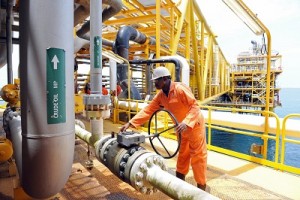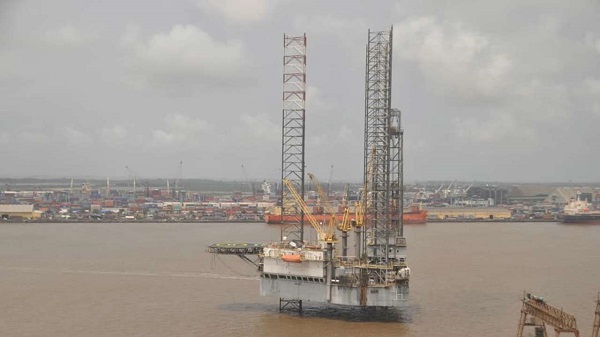Nigeria’s oil production declines, active rigs rise

Nigeria, which again lost its Africa’s top oil producer status to Angola in January, has recorded further decline in its crude oil production, a new report from the Organisation of Petroleum Exporting Countries has indicated.
OPEC, in its Monthly Oil Market Report for March 2017, put crude oil production from Nigeria at 1.526 million barrels per day in February, down from 1.533 million bpd in the previous month, based on direct communication.
Production from its southern African counterpart, Angola, stood at 1.649 million bpd in February, up from the 1.615 million bpd recorded in January.
OPEC, which uses secondary sources to monitor its oil output, but also publishes a table of figures submitted by its member countries, said the group’s total production in February averaged 31.96 million bpd, showing a decrease of 14,000 bpd over the previous month.
It said, according to secondary sources, crude oil output increased the most in Nigeria in February, while production in Saudi Arabia, Iraq, United Arab Emirates and Angola showed the largest declines.
Secondary sources put Nigeria’s output at 1.608 million bpd, while Angola was said to have produced 1.641 million bpd.
The number of active oil rigs in Nigeria, which had continued to decline in recent months, however, rose to 26 in February, latest data from Baker Hughes Incorporated and OPEC showed.
The nation’s rig count stood at a low of 23 in December last year, down from 38 in January 2015.
The reduction in the rig count was mostly triggered by the slump in global crude oil prices since mid-June 2014 as oil companies were forced to slash their capital budgets and suspend some projects.
Rig count is largely a reflection of the level of exploration, development and production activities occurring in the oil and gas sector.
Nigeria saw the fourth-largest drop in rig count among its peers in OPEC last year. The number of rigs in the country averaged 25 in 2016, down from 30 in 2015 and 34 in 2014.
“Regulatory uncertainty has resulted in fewer investments in new oil and natural gas projects, and no licensing round has occurred since 2007. The amount of money that Nigeria loses every year from not passing the PIB is estimated to be as high as $15bn,” the United States Energy Information Administration said in its ‘Nigeria Brief’.
Nigeria has the second-largest amount of proven crude oil reserves in Africa, but exploration activity has slowed.
“Rising security problems, coupled with regulatory uncertainty, have contributed to decreased exploration,” the EIA said.
According to the agency, the PIB, which was initially proposed in 2008, is expected to change the organisational structure and fiscal terms governing the oil and natural gas industry if it becomes law.
It said, “International oil companies are concerned that proposed changes to fiscal terms may make some projects commercially unviable, particularly deepwater projects that involve greater capital spending.”
The Minister of State for Petroleum Resources, Dr. Ibe Kachikwu, had recently said the agreement by OPEC and non-OPEC producers to cut production with a view to stabilising prices was already yielding results for Nigeria.
He said higher oil prices and a long-term plan for production were spearheading the country’s efforts to get its oil and gas sector back on track.
Kachikwu noted that tackling militancy in the Delta communities was a high priority for the government, which would produce far-reaching benefits.
“We can already see that our efforts to create a more enabling environment and increase stability are producing positive responses from investors,” he said.
Meanwhile, the International Energy Agency said on Wednesday that global oil inventories rose for the first time in January as the market grappled with a swell in production last year.
According to the agency, if OPEC maintains its output cuts, demand should overtake supply in the first half of this year.
The IEA said crude stocks in the world’s richest nations rose in January for the first time since July by 48 million barrels to 3.03 billion barrels, more than 300 million barrels above the five-year average.
It said compliance by OPEC with its agreed output cut of 1.2 million bpd in the first half of this year was 91 per cent in February and, if the group maintained its supply limit to June, the market could show an implied deficit of 500,000 bpd.
“If current production levels were maintained to June when the output deal expires, there is an implied market deficit of 500,000 bpd for first half of 2017, assuming, of course, nothing changes elsewhere in supply and demand,” the IEA said.








